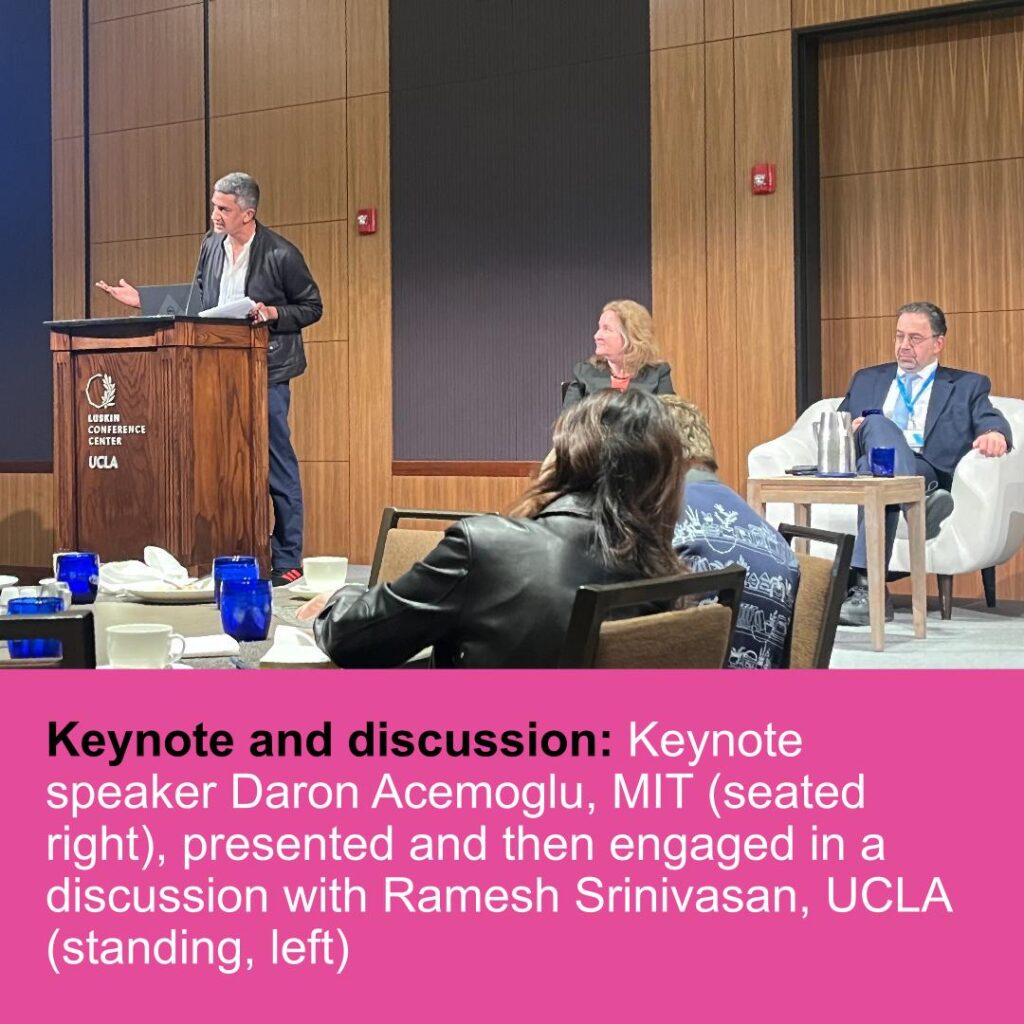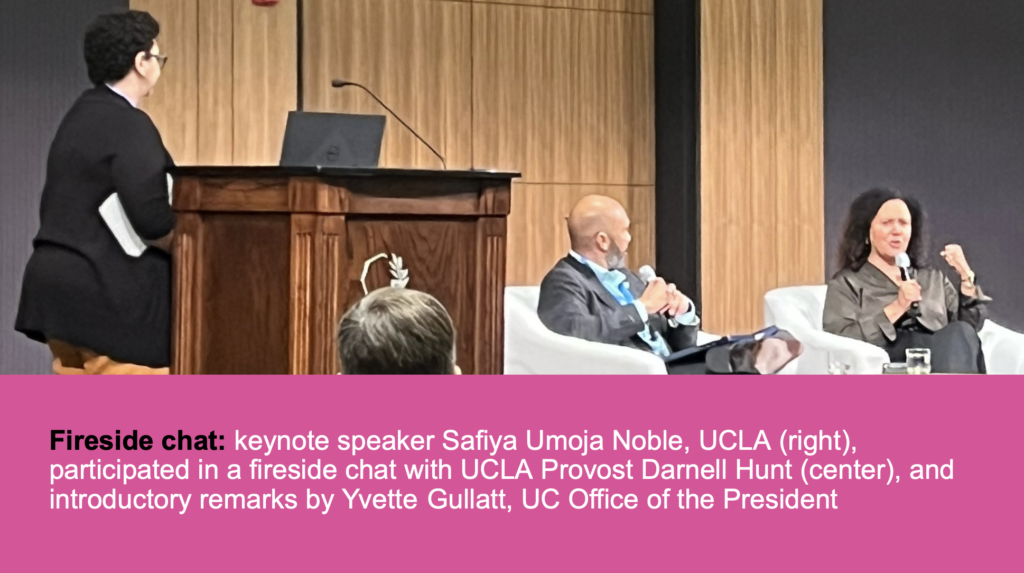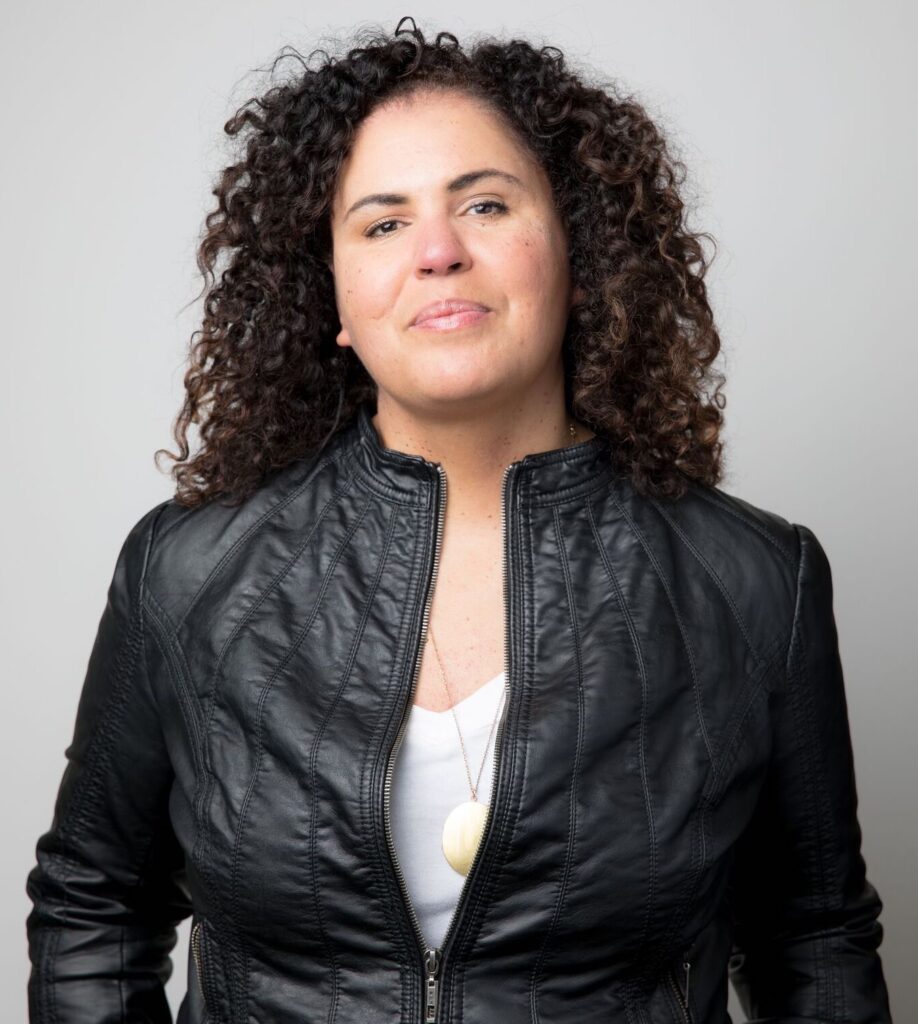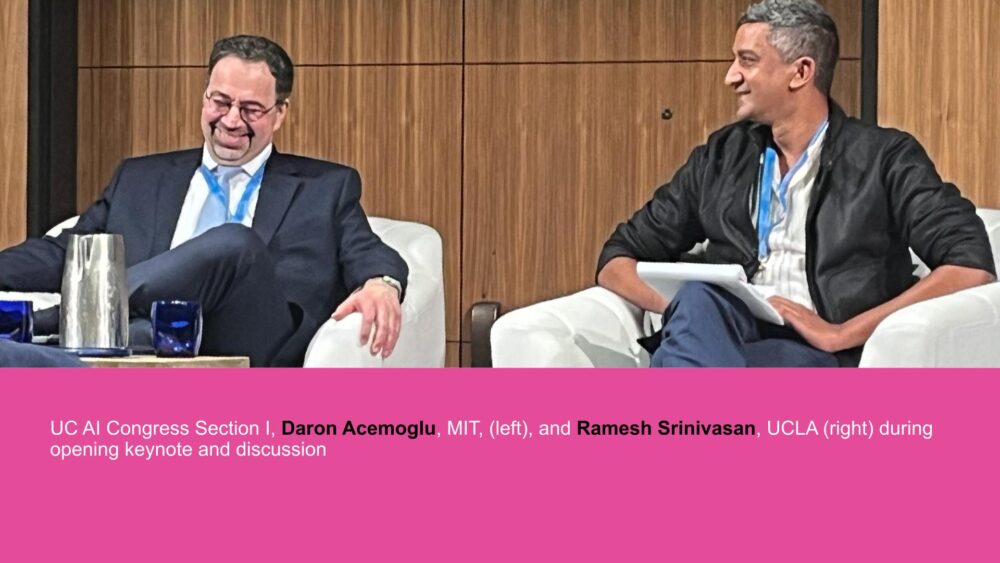Keynote Speaker: Daron Acemoglu, MIT
Author and MIT professor Daron Acemoglu highlighted the significance of AI not only in shaping the economy but also in influencing broader aspects of humanity. As AI continues to advance rapidly, with trillions of dollars being invested in its development, questions arise about its implications for work, economic production, democracy, and societal participation.
The discussion centered on two competing visions regarding the role of AI: autonomous machine intelligence and machine usefulness. While the former envisions machines achieving human-like capabilities with minimal human intervention, the latter emphasizes machines as complementary tools to enhance human decision-making and productivity. Prof. Acemoglu identified four key roadblocks hindering the realization of a more positive vision for AI integration:
- Excessive Automation: The rapid adoption of AI-driven automation threatens to replace human labor in various tasks, leading to concerns about job displacement and economic inequality.
- Loss of Information Diversity: The proliferation of AI technologies may narrow the diversity of information sources and perspectives, potentially limiting creativity and innovation.
- Misalignment of Human-AI Interactions: As AI systems become increasingly autonomous, there is a risk of misalignment between human cognitive processes and AI algorithms, potentially leading to unintended consequences and errors.
- Monopolization of Information: The concentration of control over AI technologies and data by a few powerful entities raises concerns about monopolistic practices and unequal access to information.
Despite these challenges, Acemoglu acknowledged the potential benefits of AI in improving human task performance and decision-making. Studies have shown that providing humans with access to generative AI tools can lead to productivity gains in certain tasks. However, he cautioned against unrealistic expectations and emphasized the need for careful consideration of the societal implications of AI integration.

Discussant: Ramesh Srinivasan, UCLA
Author and UCLA professor Ramesh Srinivasan emphasized the importance of popular democratic will and action by scholars, public institutions such as universities, and an engaged citizenry to shape the development of AI and the social contract. Policy and governance proposals are under discussion that would better align AI with the public good.
The increasing mediation of our lives by data and digital footprints raises concerns about the lack of transparency and accountability in data collection by companies, as well as the potential for corporate and state control over personal data. As this data is fed into AI systems, it is crucial to examine the philosophical question of whether data can truly capture and represent human knowledge. The impact of AI extends beyond the realm of knowledge representation, as algorithmic AI systems invisibly shape critical life outcomes in areas such as loans and healthcare. These systems rely on various types of intelligence, highlighting the need to understand the underlying mechanisms and limitations of different AI approaches.
The development and deployment of AI technologies have significant political and economic implications, including the potential to exacerbate job displacement, expand the gig economy, and widen income inequality. Considerations of environmental costs associated with AI infrastructure must be addressed. Rather than focusing on far-off doomsday scenarios, the attention should be directed towards the real, current effects of AI on society. Key questions arise concerning the vision for AI in supporting humanity and who governs and benefits from these technologies. (Proposals such as creating a form of universal basic income may be part of the solution and compensate for the value creation of individuals who unwittingly contribute to refining these AI systems.) The AI conversation ultimately leads to broader questions about the desired world and values, such as the balance between homogenization and the preservation of plural worlds and diversity, as well as the governance of technologies to serve public interests rather than a world and its people being directed by machines.
To navigate these challenges, public engagement is crucial. The importance of popular democratic will and action by scholars, universities, and citizens cannot be overstated. Policy and governance proposals exist to align AI with the public good, and it is through collective efforts that society can shape the trajectory of AI and redefine the social contract in the age of artificial intelligence.

Fireside Chat: Safiya Noble, UCLA
In this engaging fireside chat with UCLA Provost Darnell Hunt, MacArthur Award winner and UCLA professor Safiya Noble shared her intellectual journey and insights on the intersection of race, gender, and technology. Noble’s interest in studying the harmful dimensions of technology on vulnerable people and society stems from her experience in the advertising industry and the disconnect she observed between industry and academia regarding responsible development of emerging technologies like search engines and social media.

MacArthur Award winner and UCLA professor
Noble’s groundbreaking book, “Algorithms of Oppression,” explores the discrimination and bias embedded in search algorithms, particularly in relation to women of color. Through her research, she demonstrates how algorithms can prioritize certain values over others and perpetuate societal biases. Noble emphasized the importance of intersectionality in understanding the disparate impact of these systems on historically oppressed identities.
The discussion delved into the challenges posed by generative AI and large language models like ChatGPT. Noble highlighted the environmental impact, exploitative labor practices, and potential for misleading or incorrect responses associated with these technologies. She stressed the need for deep expertise to discern the accuracy of the information provided by AI systems.
In the context of education, Noble shared her experiences using search engines to teach critical media literacy and the importance of students being able to differentiate between accurate and inaccurate information. She also touched on the role of AI in creative industries, such as Hollywood, and the significance of the recent actors and writers strike in preserving human creativity.
To mitigate bias and address the challenges posed by AI, Noble emphasized the role of regulatory agencies in creating guardrails and the responsibility of the University of California to critically assess the adoption of these technologies. She advocated for demanding tech companies to pay their fair share of taxes to fund education and public infrastructure and urged the UC system to take a leadership role in shaping the conversation around AI’s societal impact.
The fireside chat also featured thought-provoking questions from the audience, touching on the factors driving problematic search engine results and the balance between regulation and accessibility of AI tools. Noble underscores the importance of considering the societal and environmental costs of AI technologies and recognizing the interdependence of various factors in the ecosystem.
Throughout the discussion, Safiya Noble’s insights illuminated the complex interplay between technology, society, and ethics. Her work serves as a clarion call for critically examining the development and deployment of AI technologies, prioritizing the preservation of human creativity, and actively working towards mitigating the harmful effects of algorithmic bias on vulnerable communities.
[Cover image caption: Opening keynote with discussant Ramesh Srinivasan, UCLA, standing at the podium, with keynote speaker Daron Acemoglu, MIT, seated on the right]

